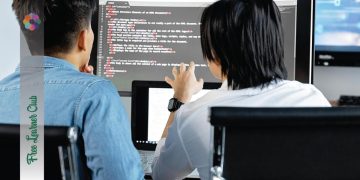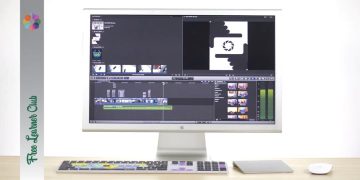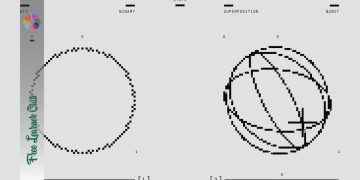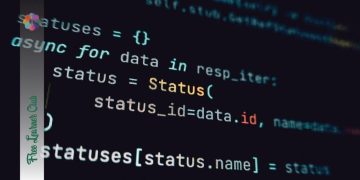Efficient time management is a crucial skill for any student who wants to achieve academic and personal success. In the academic world, where deadlines and responsibilities pile up quickly, knowing how to organize and make the most of every minute can make all the difference. But why is time management so important in academic life?
Importance of time management in academic life
Time management not only allows students to meet their academic obligations, but also helps them reduce stress and find a balance between study, leisure, and other activities. Good time management can significantly improve students’ quality of life, allowing them to enjoy their university years more fully and satisfactorily.
Benefits of good time management
Students who master time management often experience a number of benefits, such as:
- Improved academic performance: By devoting quality time to studying and completing tasks, academic results tend to improve.
- Stress reduction: By having a clear plan, you reduce the anxiety that arises from deadlines and piled-up tasks.
- More free time: Effective time management frees up time in your schedule that can be devoted to hobbies, sports, or relaxation.
- Developing Life Skills: The ability to manage time efficiently is a valuable skill that will be useful in all aspects of life.
Common time management challenges for students
Despite its benefits, many students face challenges when trying to manage their time efficiently. Some of these challenges include:
- Procrastination: The tendency to put off unpleasant tasks is one of the biggest obstacles to effective time management.
- Distractions: Social media, video games, and other leisure activities can easily distract from studying.
- Task Overload: Sometimes students take on more responsibilities than they can handle, making time management difficult.
Addressing these challenges requires specific strategies and the use of appropriate tools. In the following sections, we will explore some key strategies for efficient time management, as well as tools and applications that can facilitate this process. In addition, we will offer practical tips to avoid procrastination and explain how to measure and evaluate your time management to achieve continuous improvement.
Key strategies for efficient time management
Efficient time management is a crucial skill for any student who wants to succeed in their studies and maintain a healthy balance in their life. Here we present essential strategies that will help you optimize your time and improve your academic performance.
Setting clear goals and objectives
The first step to effective time management is to define clear goals and objectives. This means knowing exactly what you want to achieve in the short, medium, and long term. By having well-defined goals, you can plan your activities more effectively and stay focused on what really matters.
- Short-term goals: These can be daily or weekly tasks, such as completing an assignment or preparing for a presentation.
- Medium-term goals: These may include passing an important exam or finishing a project within a month.
- Long-term goals: These refer to broader goals such as graduating with honors or completing a specific online course.
Prioritizing tasks according to their importance and urgency
Once you are clear about your goals, the next step is to prioritize your tasks. Not all activities have the same importance or urgency, so it is essential to learn to distinguish between them. A useful tool for this is the Eisenhower Matrix, which allows you to classify tasks into four categories:
- Important and urgent: tasks that you must do immediately.
- Important but not urgent: Activities that you can schedule to do later.
- Not important but urgent: tasks that you can delegate to other people.
- Not important and not urgent: activities that you can eliminate from your list.
Time-blocking technique to structure the study
Time blocking is a technique that involves dividing your day into blocks of time allocated to specific tasks. This strategy helps you focus on one activity at a time and minimizes distractions. For example, you can block out two hours in the morning to study math and then an hour after lunch to work on a project. Time blocking allows you to have tighter control over your time and ensures that you devote enough attention to each task.
- Intensive study block: 2 hours of distraction-free study.
- Active rest block: 30 minutes of physical activity or relaxation.
- Review block: 1 hour to review what you have learned.
Implementing these strategies will allow you to not only improve your efficient time management but also increase your productivity and achieve your academic goals more easily. Remember that the key is consistency and adjusting these techniques to your needs and lifestyle.
To delve deeper into how to apply these strategies to specific academic projects, we recommend exploring courses like SEO strategies for academic projects, which will give you additional tools to effectively manage your time while working on your student projects.
Tools and applications to improve time management
In the digital age, having technological tools that facilitate efficient time management is essential for any student. These tools not only help to better organize time but also allow for more accurate tracking of tasks and commitments. Below, we will explore some of the best options available.
Using digital diaries and calendars
Digital diaries and calendars are essential for effective time management. They allow you to clearly and orderly view all your upcoming activities and commitments. In addition, most of these tools offer the possibility of setting reminders, which ensures that important dates are not forgotten. Google Calendar is a prime example, offering an intuitive interface and the ability to sync with other devices.
Task management and reminder apps
There are numerous apps designed to help students manage their daily tasks. These apps allow you to create to-do lists, set priorities, and set short- and long-term goals. Some of the most popular ones include Trello, which uses a system of boards and cards to organize projects, and Todoist, which allows you to create recurring tasks and categorize them.
Benefits of timeboxing techniques
Timeboxing is a time management technique that involves allocating a fixed block of time to a specific activity and then proceeding to complete it within that time limit. This technique helps improve concentration and prevent procrastination.
Pomodoro is one of the most well-known timeboxing techniques, where you work intensely for 25 minutes at a time, followed by a short break. There are apps like Focus Booster that are designed to make implementing this technique easier.
These tools and techniques not only help improve efficient time management but also contribute to reducing stress and increasing productivity. By integrating them into their daily routine, students can ensure that they make the most of their time and achieve their academic goals more effectively.
For those interested in delving deeper into additional time management and productivity strategies and tools, there are online resources such as courses and workshops that can be of great help.
Incorporating these tools and techniques into academic life will not only make time management easier but will also allow students to achieve greater success in their studies and future projects.
Practical tips to avoid procrastination
Procrastination is one of the biggest enemies of efficient time management. Putting off important tasks can lead to a vicious cycle of stress, and low productivity, and ultimately affect academic performance. Below are some practical tips to combat procrastination and improve your focus and concentration.
Concentration and focus techniques
- Pomodoro Method: This technique involves working intensively for 25 minutes and then taking a short 5-minute break. These intervals are known as “pomodoros.” After four pomodoros, it is recommended to take a longer break, about 15 to 30 minutes. This structure helps keep the mind fresh and focused for longer periods.
- Distraction-Free Environment: Make sure your study space is organized and free of items that can distract you. This includes silencing notifications on electronic devices and having all necessary study materials on hand before you begin.
- Mindfulness techniques: Practicing mindfulness can help improve concentration and reduce anxiety. Spending a few minutes a day meditating or doing breathing exercises can significantly increase your ability to stay focused on your tasks.
Importance of breaks and stress management
- Scheduled breaks: Incorporating regular breaks into your study routine not only prevents burnout but can also boost your productivity and creativity. Use these moments to stretch, take a walk, or do some relaxing activity.
- Physical activities: Regular exercise is key to managing stress and improving concentration. Even light activities, such as walking or yoga, can have a positive impact on your overall well-being and your ability to manage time efficiently.
Creating a conducive study environment
- Adequate lighting: A well-lit space is essential to avoid eye strain and maintain concentration. Natural light is ideal, but if you study at night, make sure you have a good source of artificial light.
- Ergonomics: Maintaining a proper posture while studying is important to avoid aches and pains. Invest in a comfortable chair and make sure your desk is at a suitable height.
- Motivational Items: Surrounding yourself with items that inspire or motivate you can make a huge difference. This can include inspirational quotes, a vision board, or even a list of your short- and long-term goals and objectives.
Implementing these tips will not only help you avoid procrastination but will also improve your efficient time management. Remember that the key is to find a balance and adapt these strategies to your needs and lifestyle. With practice and dedication, you will be able to develop habits that will allow you to successfully achieve your academic goals.
How to measure and evaluate your time management
Efficient time management is not only about planning and executing tasks but also about measuring and evaluating the results of our actions. This stage is crucial to understanding how we are using our time and how we can improve our productivity. Below are some strategies to effectively measure and evaluate your time management.
Recording and analyzing the time spent on each activity
One of the most effective ways to measure how you manage your time is by recording your daily activities. This involves keeping a journal or using apps that allow you to record how much time you spend studying, doing homework, and other activities.
At the end of the week, analyze these records to identify patterns or areas where you could be more efficient. For example, if you find that you spend too much time on social media when you should be studying, you could look into strategies to limit these distractions.
Continuous adjustments and improvements in planning
Once you’ve analyzed how you use your time, the next step is to make adjustments to your planning. This may mean reallocating blocks of time to study subjects that require more attention or adjusting your study techniques to be more efficient.
The key here is to be willing to experiment with different approaches and adapt your planning based on what works best for you. Remember, efficient time management is a continuous process of learning and adjustment.
Reflection on the effectiveness of the strategies implemented
Finally, it’s important to take a moment to reflect on the time management strategies you’ve implemented. Ask yourself if you’ve achieved your goals, if you feel less stressed, and if you have more time for activities outside of studying. This reflection will help you understand which strategies work for you and which ones you need to modify or eliminate.
It will also allow you to celebrate your achievements and stay motivated to continue improving your time management.
Efficient time management is an essential component of academic and personal success. By measuring and evaluating how you use your time, you can make necessary adjustments to improve your productivity and well-being.
Remember, the key is to find a balance that works for you and be willing to adapt and change as needed. With practice and dedication, you can master the art of time management and achieve your goals with greater ease.



















